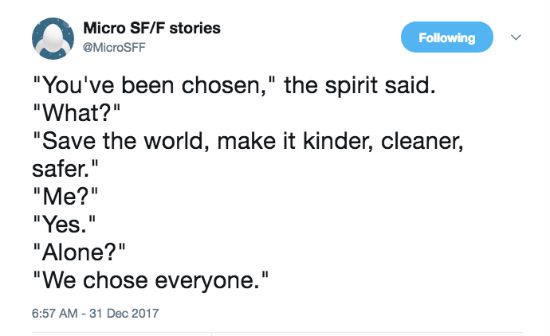(Stan T. suggested that this bit on evangelism might be more accessible reposted as a standalone piece, and I think he’s right. To avoid simply repeating myself, I’ve also added one more item to the list.)
1. Evangelism is hospitality.
Hospitality means opening up your life to share it with others. Sometimes that means sharing your home or your food, but here it means sharing that which is centrally and essentially important to you, the core of your identity and your source of meaning.
That seems kind of overwhelming — a bit more fraught than just inviting someone over for a cup of coffee. But in either case, it bears keeping in mind that this is what you’re doing — extending an invitation. And that this is who you’re dealing with — guests.
Guests are not obliged to swallow everything you’re serving, nor should they be compelled or feel pressured to do so. Your job, as host, is to defer to the preferences of your guests. Guests are not prisoners or detainees. If your attempts at hospitality cause your guests to feel more like prisoners — if you can see in their eyes the look of someone desperate to escape — then you’re doing it wrong. Stop. Step away. Let them go.
When you invite someone over to dinner, they will sometimes bring something with them to share in return — a nice bottle of wine, maybe, or some pie for dessert. If you turn up your nose at this contribution then you’re not being a good host. You’re not the only one sharing here and it would be unfair, not to mention rude, not to appreciate and honor what they’re sharing with you.
When I’m asked if I can recommend a good book on evangelism, I sometimes jokingly suggest Emily Post’s etiquette manual. Except I’m not really joking.
2. Evangelism requires relationship.
Without relationship, it’s not really evangelism, merely sales. Evangelism should never be anything like sales. This is not a transaction, not commerce.
People who are in a relationship with one another talk about those things that they regard as important. Unlike many white guys my age, I am not a member of the Cult of Golf. But since many of my friends are also white guys my age I often wind up talking about golf a lot. Why? Because they are my friends and it’s important to them. That’s how human relationships work.
Evangelism directed toward strangers often seems awkward and weird because it is awkward and weird. Evangelism in the context of relationship, by contrast, is natural and organic. It’s not weird when two friends talk about the things that are important to them. It would be far stranger if they didn’t.
A word of caution: It won’t do to try to start a friendship with someone as a means to evangelizing them. A friendship that exists only as a means to some other ends isn’t really a friendship at all. It’s more like the unctuous faux-friendliness of the salesman. We can all tell the difference between such professional chumminess and the real thing it imitates. Your local car salesman is probably a friendly guy, but he’s not your friend, he’s your salesman.
Life sometimes conspires to create encounters that bring about something like the trust and mutuality of friendship even if they’re not really part of any pre- or post-existing relationship. The train breaks down in the tunnel or the elevator gets stuck between floors and soon you may find yourself having one of those sacred, crossroads-of-life conversations with a complete stranger. You don’t know this person’s full name, you’ve never met before and you’ll likely never meet again, but despite that — or because of it — you find yourselves telling one another things you wouldn’t be able to say to the friends and family you have to live with every day. The old man next to you on the train says he had a child about your age, and because the train has stopped there in the tunnel he tells you something about that child that he’d needed to say for a very long time but had never been able to before. And because he told you that, and because the train is still not moving, you tell him things you also had needed to say — hopes, fears, dreams, confessions — that you had never before been able to articulate aloud.
That happens sometimes, miraculously. I don’t know that such encounters quite count as “relationships,” but they also can be, sometimes, appropriate contexts for what might be called evangelism.
3. Listen.
Like improv, evangelism is usually more about listening than it is about talking.
The Cherokee Baptist theologian Bill Baldridge tells a story about white missionaries who arrived at the Indian settlement. “We are here to tell you the story of our God and of salvation,” they announced.
The elders welcomed them, brought them food, and gathered around to hear this story. The missionaries, pleased by this enthusiastic audience, decided to go with the Long Version. They started at the beginning and over the next several hours they told the whole great Christian saga of creation, fall and redemption.
When at last the missionaries were finished, the elders thanked them. “This is a good story,” the elders said. “Now we would like to share with you our story.”
The missionaries were furious. Hadn’t these people been listening? Didn’t they realize that they had just heard the One True Story and that their old story, whatever it was, no longer mattered?
The missionaries abruptly left, shaking the dust off their shoes and heading out to find some other group more receptive to to their message.
4. Your story is not an argument.
Evangelism is often presented as something that starts with a sales pitch and ends in an argument. That’s wrong from start to finish. At its core, evangelism involves telling your story. That’s not a debate or an argument, it’s a testimony, a narrative (one that hasn’t ended yet).
Arguments about religion can be a lot of fun and they can sometimes even be productive. Their usefulness, though, is almost never a matter of persuasion, but rather of two friendly foes helping one another to clarify their own thoughts.
That’s the healthy version. In the unhealthy version, it’s more about two unfriendly foes using each other to reinforce for themselves what they already believe.
That distinction between healthy and unhealthy arguments has to do with whether those involved in the argument are willing to listen to and to try to understand what the other is saying. If they both are, then the argument may prove enjoyable and useful — and perhaps even marginally persuasive. But if neither one is really listening or really interested in understanding what the other side is saying, then all that’s going on is two people with their fingers stuck in their ears shouting slogans in an effort to drown out the sound of their own doubts.
The unhealthy argument about religion isn’t really concerned with persuading those who disagree. It functions mainly, instead, to reassure those who already believe and to help them buttress their faltering faith.
Those in need of such reassurance would do well to avoid attempts at evangelism. Better that way for all involved.
Anyway, my point here is not to describe how best to argue evangelistically, but rather that evangelism usually ought to avoid argument. Your story is not an argument. Stick with your story.
That story should tell more than just how or why or when you began to be a Christian. That’s how we evangelicals are often taught to present our “personal testimony,” but that’s like telling a story that consists of nothing but “Once upon a time.” Telling your story means telling what it means to you that you are a Christian — why this is the most important thing to you, how it changes and shapes and directs your life, how you wouldn’t be you without the faith, hope and love you have found.
Of course, if you’re telling this story to a friend, to someone who knows you and has known you for some time, then they may already know all of that.
And if you’re trying to tell such a story but you realize that you can’t say how the faith you are trying to share actually does change or shape or direct your life, then you may find that you’re going to need to tell a better story.
And the only way to tell a better story and still have it be your story is to start living a better story.
That’s probably why so many people seem to find it easier to get in arguments than it is to tell their stories.
5. Disciples, not merely converts
“Therefore go and convert all nations,” Jesus did not say in the Great Commission. That’s what we evangelicals call the passage in Matthew’s Gospel where Jesus sends forth his disciples for the last time. What Matthew 28 actually says is this:
Go therefore and make disciples of all nations, baptizing them in the name of the Father and of the Son and of the Holy Spirit, and teaching them to obey everything that I have commanded you.
“Make disciples” is a rather different sort of project than “make converts.” It’s a longer-term endeavor. Just consider Jesus’ own efforts. He spent three years working to make 12 disciples and, for all that, he still only had a success rate of 91.6 percent.
Thinking about evangelism as making converts instead of making disciples tempts us to think we’ve finished the job when we reach the point at which it’s actually only just beginning.
Maybe that’s part of why “conversion” has replaced “making disciples” — because it seems faster and easier. If you’re interested in speed, efficiency and quantity then converts seems to be the way to go. You can probably make dozens of converts in the time it takes to make just one disciple. Even more, probably, since if speed and quantity are what you’re shooting for, then you’ll probably wind up converting some people several times.
Concentrating on conversion instead of discipleship is unfair to those we’re trying to reach. It also, I think, winds up distorting our own faith, training us to believe that conversion is the main event rather than Square One. If we go around trying to make converts instead of trying to make disciples, in other words, we wind up doing the same thing to ourselves — we become people who are converts, but not disciples.












